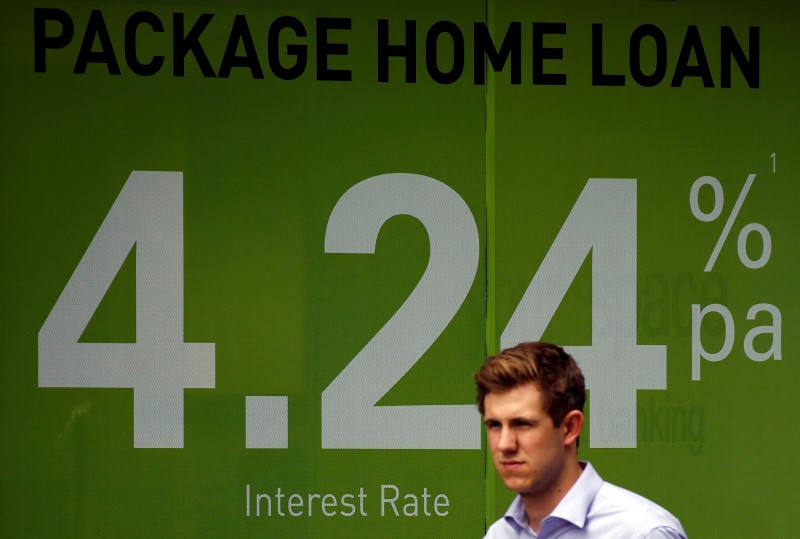SYDNEY, Jan 3 (Reuters) - Australian home prices boasted their biggest increase last year since 2009 as December ended on a high note for the red-hot markets of Sydney and Melbourne.
Property consultant CoreLogic said its index of home prices for the combined capital cities climbed 1.4 percent in December, picking up from November's slight 0.2 percent gain.
Annual growth in overall prices accelerated to 10.9 percent, from 9.3 percent, taking it back toward 2015's lofty peaks atop 11 percent.
That will be a worry for the Reserve Bank of Australia (RBA) which had been hoping the market would cool after regulators slapped banks with tighter lending rules.
After cutting interest rates to a record low of 1.5 percent in August, the central bank has sounded reluctant to ease further in part because it could encourage more borrowing by already heavily indebted households.
The CoreLogic data showed home prices in Sydney kept up their blistering run with a rise of 0.9 percent in December from November. The annual pace of growth also spurted to 15.5 percent, from 13.1 percent.
Melbourne enjoyed a surge of 3.1 percent in December, more than making up for November's unusual 1.5 percent decline. Annual growth also picked up smartly to 13.7 percent, from 11.3 percent.
Since January 2009, home values in Sydney have risen by 97.5 percent while Melbourne has increased by 83.5 percent.
Price growth was more mixed elsewhere in December, with Brisbane seeing an annual rise of 3.6 percent and Adelaide 4.2 percent, but Perth suffering a fall of 4.3 percent.
Growth outside the major cities was also modest at 2.8 percent.
There has also been a divergence of growth between houses and apartments, with the latter expanding much more slowly. Capital city house values rose by 11.6 percent over 2016, compared to 5.9 percent for units.
The inexorable price rise in the major cities has taken homes out of the reach of many first-time buyers and become a political hot potato.
The conservative government of Malcolm Turnbull has blamed a lack of supply for the problem, while the opposition Labor Party has pointed the finger at favourable tax treatment for property investment.
